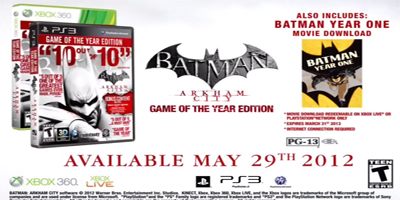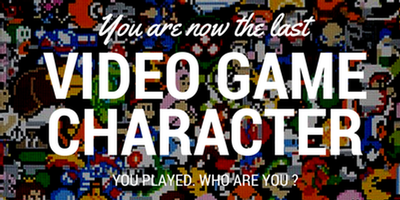- by Ken "Chaobo" Serra
- Posted on April 23, 2012 @ 4:00 PST

You’ll notice that a lot of the games you enjoy today have had a lot of support from the media. Fresh new leaks, news, details, screenshots, and trailers are posted about various upcoming games pretty much on a daily basis. Generally, what this means is “AAA” game titles get A LOT of early exposure, sometimes even months or even years before the game launches! Is it a good thing or a bad thing? Irrational Game’s own Ken Levine talks about the matter.
There was a lot of pressure regarding whether or not Bioshock Infinite would be announced early or not to inform gamers.
"We probably would have announced it later, but we were worried about it leaking. We had a nice unintentional head fake, everyone thought we were working on this X-Com game, but we weren't. It wasn't what people expected," Levine said. "Without our presentation, people would have gotten the wrong message about [BioShock Infinite], it would have been confusing."
So Infinite was announced earlier because the average consumer’s guess was Irrational was working on another X-Com and was also worried about unintentional leaks. Some of those in the hardcore community believe games are spoiled when too much details are given about a video game months before release. I agree to some extent. Sometimes, it would’ve much more fun to not know and find out for myself. But that’s not what Levine plans to argue.

Games DO cost a lot of money now, especially for the more popular titles, which generally release with the $60 price tag. "We're asking them to spend a lot of money: $60. That's a lot of money. It's our responsibility to give them the information they need to make the purchasing decision,” Levine says and I agree with this 100%. As a game writer, and a rather new one at that, I learned that it’s our duty to not only talk about the games, but give good reasons and the best possible judgment ,as to why you should or even shouldn’t buy a game for [insert varying reason] here.
Levine’s point is rather interesting to hear. Because even where gaming stands today, being a multi-billion dollar industry and all, most of our news networks, blogs, and media outlets are not really mainstream. "We're not covered in the New York Times in a major way, the way a movie would be," noted Levine. "We're not on the cover of Entertainment Weekly."
Think about it really hard. There are a ton of gamers in the world. But how many of them are what you call “hardcore”? Digging up and absorbing all the information they possibly can? If a game isn’t covered by a mainstream media outlet, what are the odds of an average person noticing a particular video game and then wanting to purchase said video game? Slim to none. Video Games really are still covered by media outlets that cover... pretty much just video games.

"People overestimate how exposed games are, in comparison to other forms of media," Levine said. "There are maybe a million hardcore games, and Call of Duty is going to sell 25 million copies. You either find ways to reach the other [24 million] in ways you can't normally, or repeat the imagery enough that when they go to IGN they might come across it."
So even with games being as popular as they are, without the current rate of over-exposure, some of the best games of today just wouldn’t be discovered by outside consumers. Movies are commonly exposed by every form of mainstream media from television news to popular magazines. Take some of the most popular movies at the moment which are The Hunger Games and The Cabin in the Woods. Stuff like that is exposed everywhere so it would be a lot easier to walk up to someone and ask their take on a particular movie. Perhaps they’ve never even seen the movie before, but they may tell you “Oh well, I heard from so and so that the movie is blah blah.”
Even from personal experience, I haven’t been able to start conversations with random people about specific video games. It always had to be gaming in general, then stretch on to a particular video game that everyone had knowledge of which were commonly the already-established mainstream titles like Call of Duty or Mass Effect. “So you guys hear about Bioshock Infinite?” A response like “They’re making a sequel?” isn’t too far-fetched.

So I guess the need for over-exposure is a good thing. The more media outlets cover a game, the more likely a game will be noticed by varying gamers. Essentially, Levine believes that giving gamers the choice of being able to obtain the information is a whole lot better than just starving everyone of all the details. And you know, I think he’s right in almost every way.




















